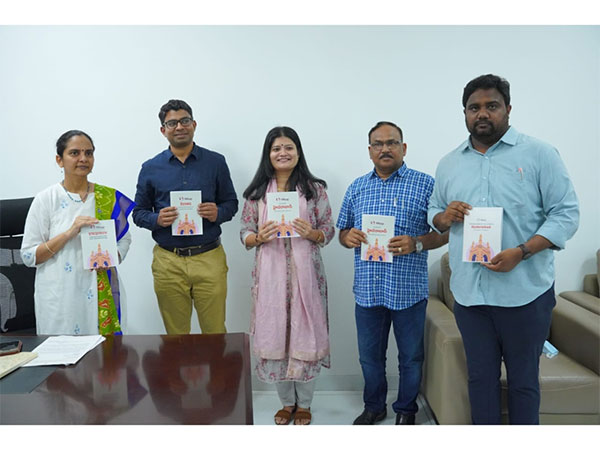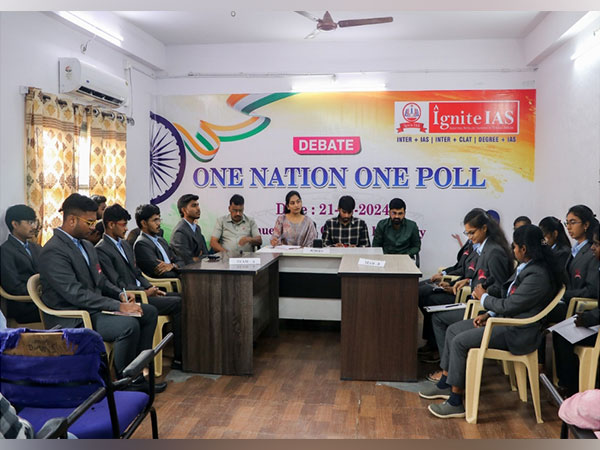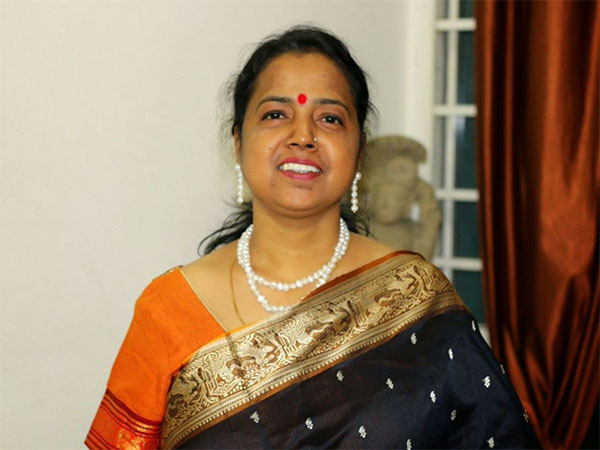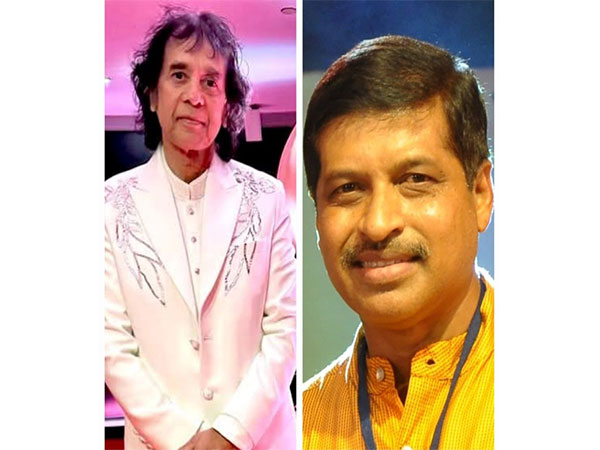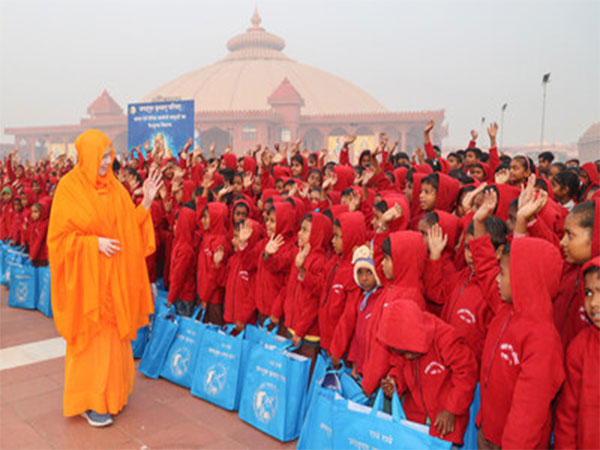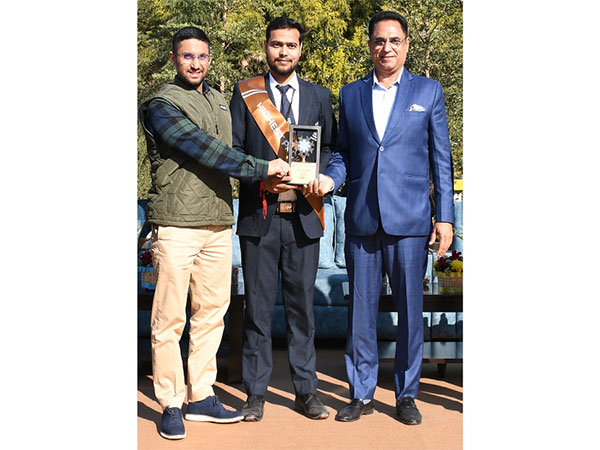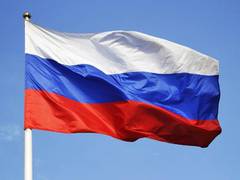
'It's like playing with death' - Ukraine's female front line soldiers
Aug 02, 2023
Kyiv [Ukraine], August 2: Ukrainian women have been signing up in growing numbers to serve as combat troops against Russia.
The BBC spoke to three of the 5,000 female front-line soldiers who are fighting both the enemy and sexist attitudes within their own ranks.
A slim, blue-eyed, brunette woman is working out in a gym. This might be unremarkable were it not for the fact that according to the Russian media - she is dead.
Andriana Arekhta is a special unit sergeant in the Ukrainian armed forces, preparing to return to the front line.
The BBC found Andriana in a rehabilitation centre in Ukraine - in a location we cannot name for her safety - after she was injured by a landmine in the Kherson region in December.
Numerous text and video reports in Russian celebrate her "death" in graphic detail.
"They published that I am without legs and without hands and that I was killed by them," says Andriana. "They are professionals in propaganda."
The reports include lurid descriptions of her such as "executioner", and an "eliminated Nazi".
Accusing her of cruelty and sadism without any proof, they appeared shortly after the Ukrainian army had liberated Kherson.
"It's funny to me. I am alive and I will protect my country," she says.
Eighteen months on from Russia's invasion, there are 60,000 women serving in the nation's armed forces. More than 42,000 are in military positions -including 5,000 female soldiers on the front line - the Ministry of Defence of Ukraine told us.
It added that no woman could be conscripted under Ukrainian law against her will.
But there are particular combat roles which some believe are better performed by women.
"I came to my commander and I asked him, 'What can I do the best?' He said, 'You will be a sniper,'" recalls Evgeniya Emerald - who carried out the role on the front line until recently.
She says female snipers have been romanticised since World War Two, adding there is a very practical reason for this reputation.
"If a man hesitates whether to make a shot or not, a woman will never.
"Maybe that's why women are the ones giving birth, not men," she adds - cradling her three-month-old daughter as we speak.
The 31-year-old, who had military training after Russia invaded Crimea but only joined the army in 2022, was the owner of a jewellery business before the full-scale war.
She has used her entrepreneurial experience to build a strong social media following to raise the profile of Ukrainian female soldiers.
Like Andriana, Evgeniya has been widely referred to as "a punisher" and "Nazi" by Russian media, with hundreds of reports discussing her front line role as a female sniper, and her private life.
Working as a sniper is particularly brutal - says Evgeniya - both physically and mentally.
"Because you can see what is going on. You can see hitting a target. This is a personal hell for everyone who sees that in a [sniper's] scope."
Evgeniya, and the other front-line women we have spoken to, cannot reveal the number of targets they have hit. But Evgeniya remembers the heightened emotion she felt when she realised she was probably going to have to kill someone.
"For 30 seconds I was shaking - my whole body - and I couldn't stop it. That realisation that now you'll do something that will be a point of no return.
"But we didn't come to them with a war. They came to us."
The percentage of women in the Ukrainian military has been growing since the first Russian invasion in 2014, reaching over 15% in 2020.
But while many female troops are serving in combat roles against Russia, they say there is an extra battle within their own ranks against sexist attitudes.
Evgeniya says she faced this before she established her authority and confidence as a front-line sniper.
"When I had just joined the special forces, one of the fighters came to me and said, 'Girl what are you doing here? Go and cook borshch [Ukrainian traditional soup].' I felt so offended at that moment I thought, 'Are you kidding me? I can be in the kitchen, but I can also knock you out."
Another Evgeniya, Evgeniya Velyka from the Arm Women Now charity - which provides help to Ukrainian female soldiers, agrees: "In society exists a strong opinion that girls go to the army to find a husband."
She says women have also told her about cases of physical abuse.
"We can't imagine the scale of the problem because not every female soldier wants to talk about this," she says.
Ukraine's Deputy Defence Minister, Hanna Malyar, told the BBC those were just a "few cases" in contrast to "hundreds of thousands" mobilised.
Women in the Ukrainian army do not have gender-appropriate uniforms. They are issued with ill-fitting male fatigues, including male underwear, outsized shoes and bulletproof vests.
Even the deputy defence minister, Hanna Maylar, says her field uniform is designed for a man - which she has had to alter as she has "a small height". She adds that the ceremonial uniform includes shoes with heels.
If women in the army want to wear female fatigues, they must currently either buy their own generic kit online or rely on charities or crowdfunding.
This is why Andriana co-founded a charity called Veteranka [Ukrainian Women Veteran's Movement], which campaigns for equal rights for female military personnel, and for reforming Ukrainian army legislation to bring it in line with NATO's.
But Ms Malyar says the government has made progress. A uniform for women has been developed, tested and will enter mass production in the near future - although she could not specify when.
Sniper Evgenya Emerald says that despite such issues, "war doesn't have a gender".
"A war doesn't care whether you are a man or a woman. When a missile hits a house it doesn't care if there are women, men, or children - everyone dies.
"And it's the same on the front line - if you can be effective and you're a woman, why wouldn't you defend your country, your people?"
In the eastern Donbas region, sniper Iryna is involved in the counter-offensive right now. We secure a brief connection with her during a moment of peace on the battlefield.
She could be held up as an example of the reforms so many combat women have been working hard for - she is acting up as a female commander of an all-male unit.
"A sniper's image is romanticised. and is beautiful due to the movies. In reality, it's hard work."
She describes how snipers lay still on the ground for up to six hours to fire a shot, followed by a rapid change in position.
"It's like playing with death," she adds.
The thousands of women serving have left behind careers as well as their families.
Andriana had left her job as the UN Consultant on Gender Equality under the Ukrainian Ministry of Veterans Affairs to join the Ukrainian military when Russia invaded last year.
"They took the best years of my life," the 35-year-old says. Thinking back to a time before the war, she adds: "I could travel and be happy, and build a career and have a dream."
The mother of a primary school-aged boy, Andriana tearfully tells me she has not held her son for over seven months. As she shows me pictures of him on her phone, a smile appears on her face, replacing her tears.
She is driven by the desire to secure him a peaceful future in his native country - not having to risk his life fighting like his parents.
Unlike Evgeniya Emerald, who joined up after Russia's full invasion last year, Andriana has previous military experience.
In 2014 when Russia first attacked Ukraine, annexing Crimea and invading Donbas, she left her job as a brand manager and joined one of the first volunteer battalions - along with thousands of other Ukrainians. At the time, the military was smaller than it is now and was struggling.
Aidar battalion, where Andriana was serving, was accused by the Kremlin and Amnesty International of human rights violations - but the Ukrainian army told the BBC that no substantive evidence to support such claims had been provided.
Amnesty also urged Ukrainian authorities to bring the volunteer battalions under effective lines of command and control, which they did.
Despite Andriana never being linked to any acts of misconduct, and her leaving Aidar eight years ago, Russian media continually accused her of "sadism", providing no evidence.
In Ukraine, she has been awarded medals for her service - one "for courage", another for being a "people's hero"
Andriana, who told the BBC she is no longer part of Aidar, said she felt obliged to re-join the army on the front line in 2022, as she already had much-needed combat experience.
While Ukraine's Ministry of Defence said it could not provide the number of combat casualties due to sensitivities of information during wartime, the BBC has obtained data suggesting 93 Ukrainian servicewomen have been killed in action since the Russian invasion.
The data, from the charity Arm Women Now, says over 500 have been injured.
Andriana's phone book has turned into a list of the dead.
"I lost more than 100 friends. I don't even know how many phone numbers I need to delete."
But the price already paid is too high to give up, she says- as she turned to finish her rehabilitation training in the gym.
Source: Fijian Broadcasting Cooperation

